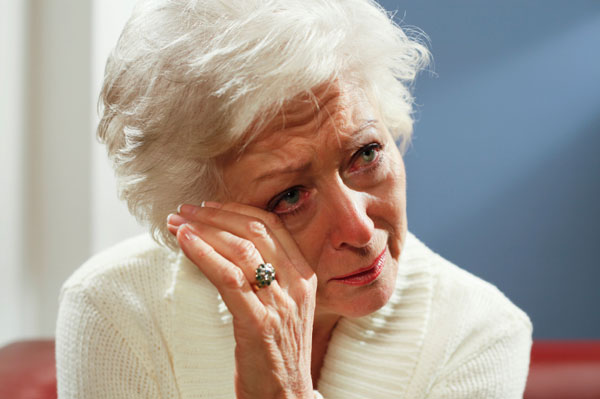7 Ways Grieving Affects Your Health
The toll of grief goes beyond an emotional cost. Our mental struggles also affect our physical health. Don't hesitate to see your physician for advice and help as you go through this difficult time. Here are seven common symptoms mourners experience.
Abdominal pain and "heartache." The emotional pain recognition site in the brain is located near the region that senses and interprets sensations, including pain, from the stomach and other abdominal organs. When we suffer emotionally, the brain responds by releasing neurochemicals we experience in our body as an intense aching in our upper abdomen and lower chest.
Eating disturbances. The nervous system chemicals that contribute to our emotional state also affect healthy hunger signals. Eating too much (trying to self-comfort using food) and eating too little (loss of appetite) are commonplace among those who've suffered a loss.
Fatigue and insomnia. The inability to sleep easily, deeply, and through the night is common under these circumstances, and may take months or years to improve. Chronic insomnia can lead to chronic fatigue.
Mood swings and irritability. Grieving people often feel as if they are going insane. That's because anxiety is a frequent component of bereavement, and the neurochemicals that produce it also contribute to irrational moods swings and uncontrollable irritability.
Functional impairment. Anxiety and stress resulting from extreme grief can cause the mourner to experience noticeable impairment in concentration, decision making, and even physical reaction time, known as psychomotor retardation. It can be hazardous to your health to do any activity--such as driving, skiing, roof work, etc.--when you're under severe duress from mourning.
Sensitivity to aches and pains. Intense grief leads to feelings of depression, rejection, despondency, and loneliness. All of these understandable emotions are brought on by a decrease in serotonin and norepinephrine, the compounds that help to relieve pain and boost mood. These "feel-better" chemicals are abnormally low in the brains of grieving and depressed people, so it's normal for grievers to be more sensitive to aches and pains.
Exacerbated medical problems. It is a well-described phenomenon that existing medical problems often worsen and healing slows down when a person is under extreme stress, such as that caused by the profound burden of mourning. This is why people who are in mourning often have chronic medical complaints.
* * * * *
D. Keith Cobb MD is an internal medicine physician and the author of The Grief Survival Handbook: A Guide from Heartache to Healing (Trafford Publishing). Learn more about him at www.drkeithcobb.com.


